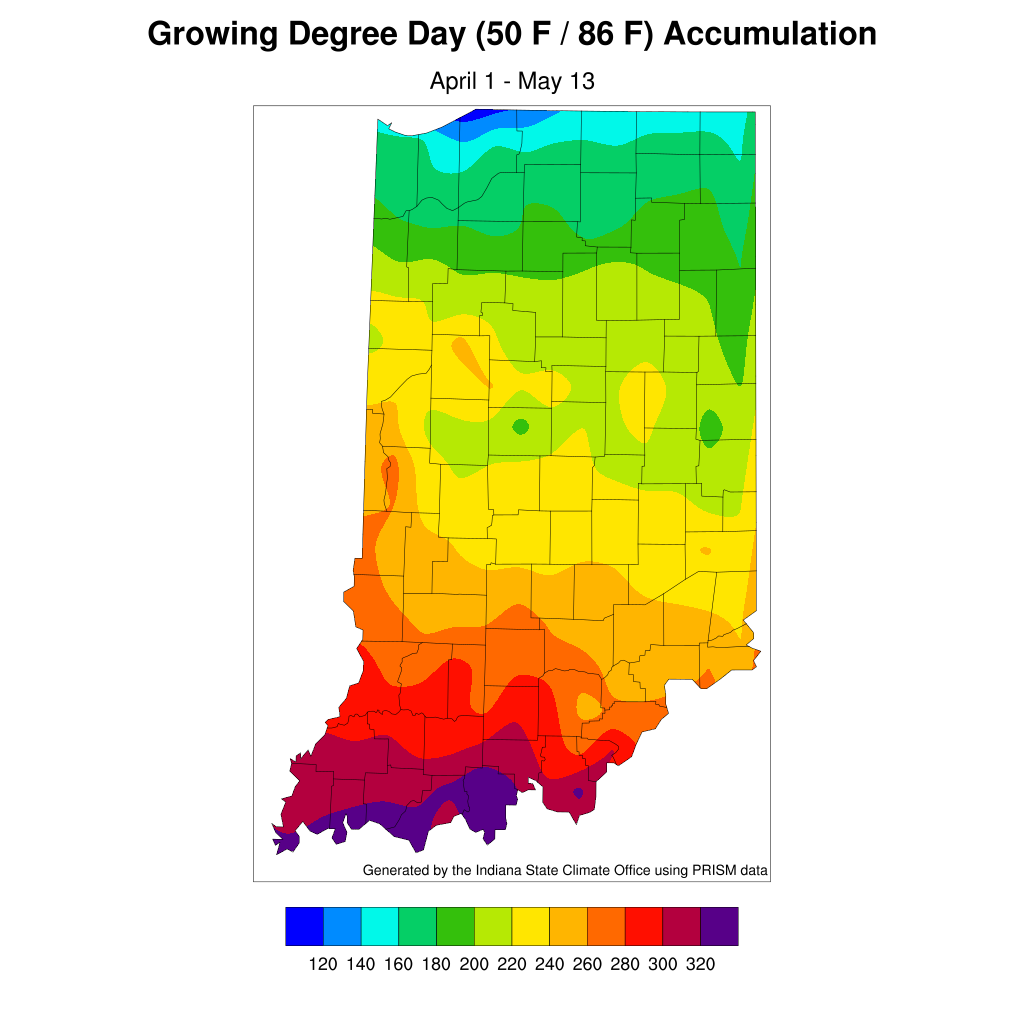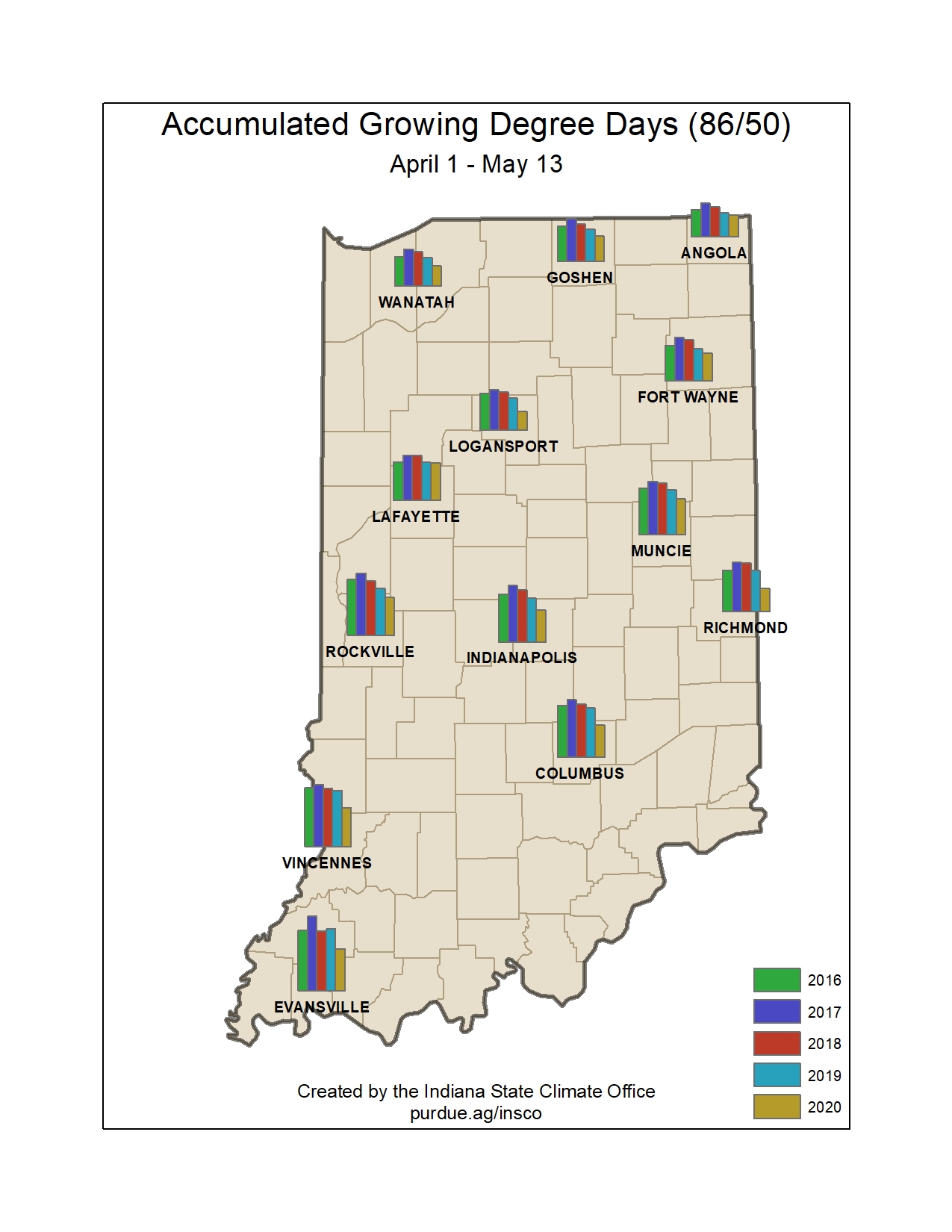Growing degree day (GDD) accumulations (Figures 1 and 2) have been off to a slow start this season due to unseasonably cool temperatures. For accumulations that began April 1, GDDs are 110-140 units below normal; those that began May 1 are 50-75 units below normal. The greatest departures are in the southern and western counties of Indiana. The good news is the below-normal temperatures should be behind us for a while as the national Climate Prediction Center is indicating a high probability for above-normal temperatures for the rest of May. Drier conditions are expected across the state for the May 19-23 period, but beyond that the climate outlook models are too uncertain.
The Indiana State Climate Office is now providing daily updated GDD maps (https://ag.purdue.edu/indiana-state-climate/growing-degree-day-climate-maps/) for the state with accumulation start dates of April 1, April 15, and May 1.




